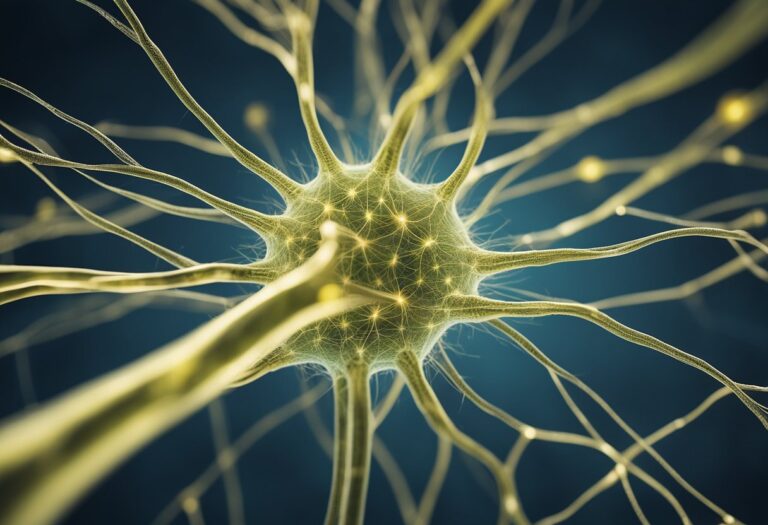Gabapentin is commonly used off label as a neuropathy pain treatment. It is a solution that many people are considering. Any relief from neuropathy pain is good, but what is this drug, and can it actually help relieve you of nerve pain?
What is Gabapentin?
Gabapentin is often sold under the name Neurontin, but you may also find it under different brand names. The drug has several uses (we’ll learn about shortly), and sales started to skyrocket in the early 2000s.
Pfizer, the parent company that makes the drug, initially created it to help treat seizures.
But then Neurontin was marketed as being a treatment for several uses, many of which the drug was not approved for, and led to a $430 million lawsuit.
Doctors still prescribe the drug for several uses, and one of the uses is for neuropathy.
What Is It Commonly Used For?
The medical usages for Gabapentin are vast, but the drug is designed to help with:
- Focal and mixed seizures. While developed for these key seizures, the drug has not been shown to be effective for general epilepsy.
- Migraines. Doctors once prescribed the drug for migraines, but studies have shown that the effectiveness for migraines is insufficient. An in-depth review from 2013 found that the drug did not prove useful for episodic migraine prevention in adults.
- Anxiety. Often prescribed as an off-label treatment, the drug has been used for people with anxiety disorders. There has not been enough research performed on the drug to determine whether or not it is effective for people with anxiety disorders.
Gabapentin is also offered for various other uses, including:
- Bipolar disorder
- Personality disorders
- Obsessive-compulsive disorder
- Alcohol withdrawal
- Nystagmus
- Kidney failure itching
- Itching from other causes
It’s important to note that the drug was originally approved as a seizure medication, so many of the medical treatments that the medication is prescribed for have lacking evidence and effectiveness rates. As you can see from the above list, the off label use for this single medication is very large.
Neurontin Side Effects
The side effects of Gabapentin vary from person-to-person, with side effects ranging from mild to intense. A few of the most common side effects, and the least worrying, are:
- Dizziness
- Fatigue
- Swelling
- Drowsiness
- Tremors
While these side effects are mild, there are a few patients that will have more intense and severe side effects. The more severe side effects include:
- Sexual dysfunction. A small percentage of people will suffer from sexual dysfunction, and this can include: loss of libido, erectile dysfunction and inability to reach orgasm.
- Suicide. The FDA issued a warning that the drug can cause suicidal thoughts. Studies found that when prescribed for patients that have bipolar disorder, the drug caused double suicidal ideation rates compared to lithium.
- Addiction. The drug can be addicting, with some studies pointing to over 1% of the population having some form of Gabapentin addiction.
Additional side effects may include higher risk of cancer cell production, including inducing pancreatic cell carcinomas in rates. Withdrawal symptoms can occur, and when used with CNS depressants, the drug may cause issues with breathing.
Gabapentin Dosage for Neuropathy and Pain Relief
Neuropathy pain can be intense, nagging pain that doesn’t go away easily. If you’re seeking pain relief, Gabapentin for neuropathy may be prescribed. But effectiveness has been minor, with studies showing little-to-no difference in pain when taking Gabapentin.
The studies include:
- 2014 study and review that looked at the effectiveness of Gabapentin for neuropathy pain. Meaningful relief was considered and would be a 50% reduction in a person’s pain. The study reviewed numerous studies and found that only 14% of people taking the drug for neuropathy pain found any form of meaningful relief.
- An independent study found that the drug had a 10% effectiveness rate for reducing pain. Since less than one in ten people had a reduction in pain, the treatment for pain was deemed relatively ineffective.
You’ll find a lot of conflicting evidence suggesting Gabapentin for neuropathy pain is effective.
It seems like a mixed bag, with studies that do find the drug effective being small in size and rather inconclusive.
For example, one study found that with 135 patients over the course of eight weeks, the drug was more effective than a placebo. While these results may seem positive, the dosages were very high, with 24% of people experiencing headaches, 11% having diarrhea and 8% of people suffering from confusion.
The risk of abuse and withdrawal are high, and since one in ten people actually have a noticeable, effective reduction in pain, it doesn’t make sense to use Gabapentin over other pain-relieving drugs.
Doctors should only prescribe this medication in rare circumstances for pain due to the lack of overall effectiveness in pain relief.
There is also a difference in pain relief, depending on the cause of neuropathy.
One review study from 2017 found that dosages of 1800 mg to 3600 mg can provide some pain relief for people that are suffering from:
- Peripheral diabetic neuropathy
- Postherpetic neuralgia
But the study also found that 10% to 20% of participants in the study experienced pain relief with a placebo, while 30% had some form of pain relief with Gabapentin. The study concluded that more than half of people will not experience a worthwhile form of pain relief.
Since the drug was not found to be overall effective for pain relief and it was not developed as a pain reliever, it is very unlikely to provide you with any noticeable form of pain relief.





